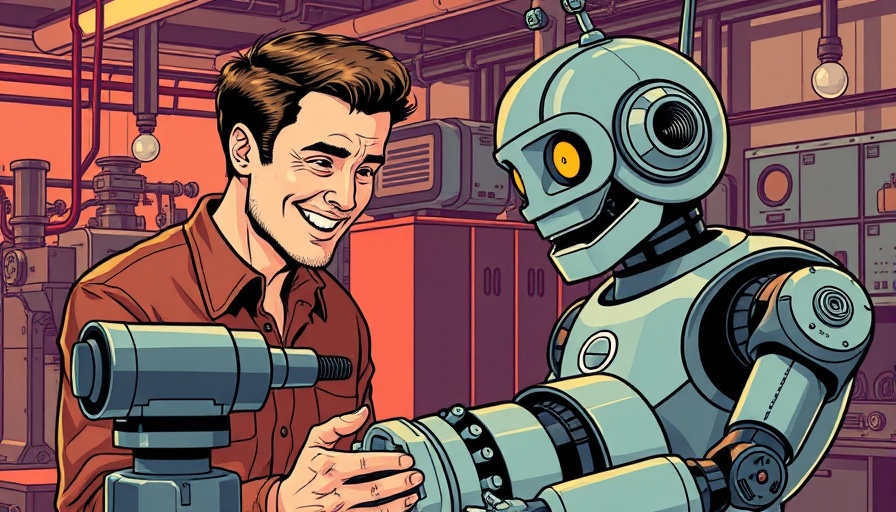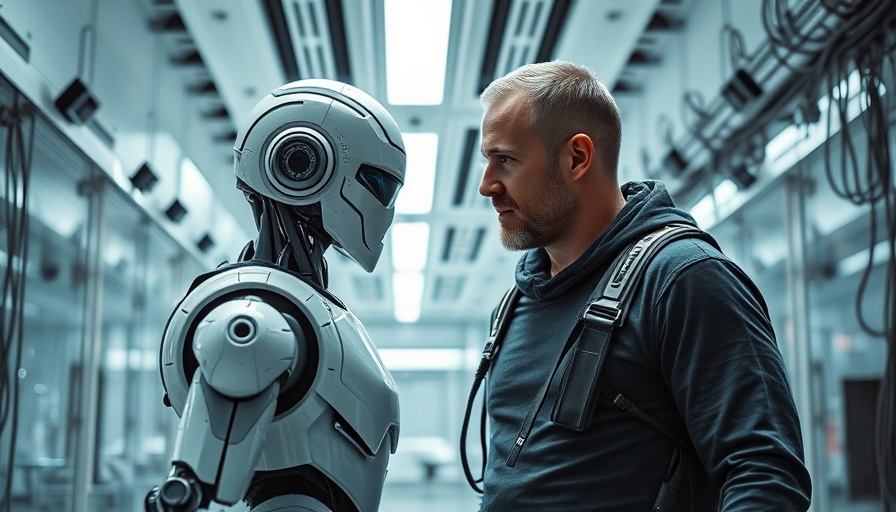
How AI Is Reshaping Our Workforce
In the age of technological advancement, artificial intelligence is poised to redefine the job landscape in unprecedented ways. The recent layoffs at companies like Microsoft have illuminated the evolving relationship between AI and employment, leading to concerns and profound discussions among business owners and employees alike. As we navigate this new frontier, it’s essential to understand both the challenges and opportunities AI presents to the workforce.
In 'How AI Is Already Changing Jobs,' the focus is on the transformative effects of AI on employment, prompting us to analyze its implications and what it means for the future of the workplace.
Understanding Recent Job Cuts
When Microsoft announced a reduction in its workforce, cutting around 3% and impacting thousands of employees—primarily in software engineering and management—many observers speculated that AI technologies were a significant factor. CEO Satya Nadella noted that the company is adapting to a dynamic marketplace, with AI's capacity to boost productivity contributing to these organizational changes. As technology progresses, the balance between human labor and machine efficiency becomes ever more delicate.
The AI-Powered Shift in Hiring Practices
In various companies, the narrative around job roles is evolving. The leadership at Shopify, for example, has moved to a policy where teams must demonstrate their attempts to leverage AI before hiring new staff. This implies a shift away from human-driven roles towards a future where AI takes on repetitive and data-heavy tasks. Such changes underscore a larger trend: businesses are embracing AI not merely as a tool, but as a core component of their operational strategies.
Rethinking Human Roles in Customer Service and Beyond
Despite the fears that AI might render many roles obsolete, some executives are vocal about the new opportunities for human roles. For instance, CLA has started to shift back towards hiring humans in customer service, recognizing that, while AI can efficiently handle tasks, the human touch remains invaluable. This sentiment echoes through various industries as organizations discover that AI does not eliminate roles; rather, it transforms them, elevating the importance of skills that can’t be easily replicated by machines.
Challenges and Backlash: The Dual Edge of AI Adoption
The transition to an AI-first model has not been without pushback. Companies like Duolingo and CLA have faced skepticism and fallout from their respective strategies of replacing human workers with AI. Users of these services have expressed their discontent, sending a clear message through their engagement. As business owners, recognizing and managing this backlash is imperative for maintaining customer loyalty and trust.
Emerging Roles in the AI Economy
While AI might automate specific tasks, it is also giving rise to new job opportunities in its own right. Notably, the demand for roles centered around AI technologies is soaring. Analytics firm Lenny's newsletter highlighted a surge in available AI-focused positions, with thousands of roles opening up in the field as businesses integrate AI more deeply into their workflows. Understanding this trend is crucial for business owners looking to reposition their companies within the evolving job market.
The Human Element: Skills of the Future
In this new paradigm, skills traditionally categorized as soft skills—like empathy, creativity, and effective communication—are becoming more important. As machines take on routine and analytical tasks, the human elements that foster connection and innovation will drive value within organizations. This shift highlights the need for businesses to prioritize training and development that enhances these interpersonal skills, preparing teams for collaboration with AI and among themselves.
Where Do We Go From Here?
Navigating the impact of AI on jobs requires a balanced perspective. While there will certainly be disruptions along the way, the potential for AI to enhance productivity and redefine job functions is extensive. Companies that can adapt their strategies to embrace the changes AI brings while keeping the human experience front and center will emerge as leaders in the market.
As we continue to grapple with these transformations, it is vital for business owners to approach the integration of AI strategically, focusing on leveraging its capabilities while supporting their workforce through the transition. The time to act is now—START USING AI NOW to drive innovation and meet the challenges of the future head-on.
 Add Row
Add Row  Add
Add 




Write A Comment